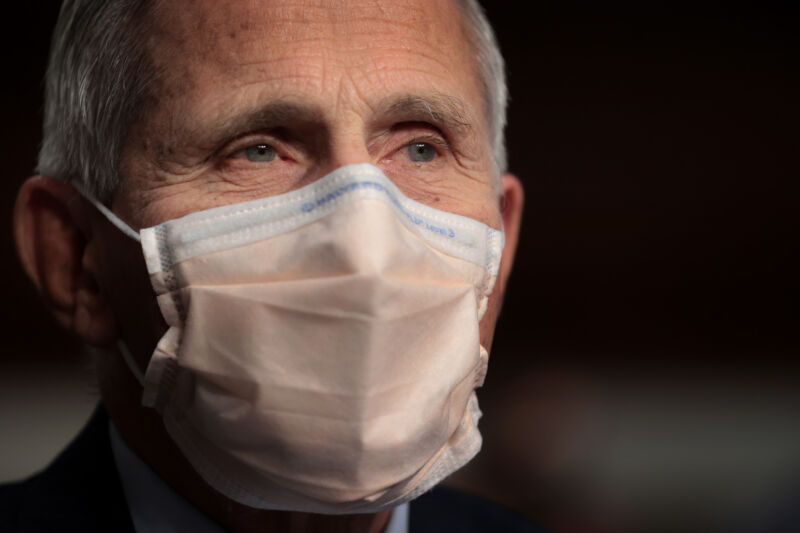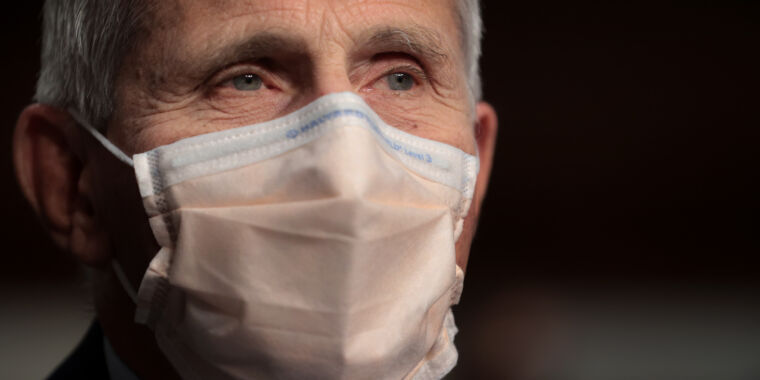
The Food and Drug Administration is expected to authorize booster doses of the Pfizer-BioNTech COVID-19 vaccine for all adults as early as Thursday, agency insiders told The New York Times Tuesday.
The reported timeline is remarkably fast-paced for the regulatory agency and comes as members of the Biden administration continue to suggest widespread boosting is necessary to bring the COVID-19 pandemic under control.
“I believe… that when we look back on this, we will see that boosters are likely a very critical part of the immunization regimen and not a bonus or a luxury,” top infectious disease expert Anthony Fauci told Reuters on Tuesday.
Currently, booster doses of the Pfizer-BioNTech and Moderna mRNA vaccines are only recommended for people in certain vulnerable groups. Those include people ages 65 and older, people with underlying medical conditions, and people who live or work in high-risk settings.
But the Biden administration has for months planned on widespread boosting, generating tension with regulators and public health experts. When the administration announced plans in August to offer booster doses to all vaccinated Americans, the FDA and the Centers for Disease Control and Prevention had not yet reviewed or recommended any extra shots.
Bleak outlook
The administration said it was merely planning ahead, citing data showing that vaccine efficacy wanes after six months. But many independent experts pointed to data showing vaccines were largely holding up against severe disease, suggesting widespread boosting was not yet necessary. Meanwhile, some FDA officials saw the administration’s plans as overstepping the regulator’s role. Two leading vaccine regulators at the FDA resigned soon after the announcement, reportedly out of frustration with the push for boosters.
In mid-September, a panel of independent advisors for the FDA resoundingly rejected authorization of Pfizer-BioNTech boosters for all people 16 and up, voting against the proposal in a 16-to-2 vote. Instead, the advisors voted in favor of a limited rollout of boosters to vulnerable groups. The experts again cited a lack of evidence that boosters were widely needed for the young and healthy.
In the weeks since, the administration has continued to champion the idea of boosters for all, and opposition to widespread boosting appears to be fading. Data continues to indicate that vaccine efficacy does decline overtime, particularly for older and high-risk groups, but boosters can safely and effectively restore protection. Experts are also anxious about the coming winter. As cold weather and holiday gatherings loom, the hypertransmissible delta coronavirus variant continues to spread, and around 41 percent of the US population is still not fully vaccinated. Nationwide, new cases of COVID-19 continue to be high, averaging over 85,000 per day—and that figure is once again on the rise. On top of all that, experts are wary that seasonal flu could come roaring back this year after being essentially nonexistent last year. A simultaneous surge of flu and COVID-19 cases could easily overwhelm already-strained health systems.
But, beyond averting the worst this winter, Dr. Fauci argued Tuesday that boosters will be necessary to end the acute phase of the pandemic and help usher in our new normal—endemic SARS-CoV-2—in the coming year. That means that the virus will continue to spread in the US, circulating at low but ever-present levels.
New normal
“Endemicity to me means a lot more people get vaccinated, a lot more people get boosted and—although you don’t eliminate or eradicate—that infection is not dominating your life. That’s what endemicity means to me,” Fauci said. Here, when Fauci says “elimination,” he means that COVID-19 would no longer spread in the US, apart from occasional, limited outbreaks sparked by imported cases. By “eradication,” he means the pandemic coronavirus would be snuffed out globally. The only human disease to be eradicated is smallpox.
Though elimination and eradication are ultimate goals, poor vaccine uptake in the US, the continued global spread of SARS-CoV-2, and significant vaccine inequity worldwide make both scenarios unlikely anytime soon. Experts, including Fauci, are now aiming to simply get the pandemic coronavirus under control—bringing case numbers down to manageable levels, preventing severe disease and death, sparing health systems, and restoring daily activities.
Fauci is hopeful that we’ll get to that point in 2022. “If we implement a good vaccination of the unvaccinated and a really good uptake of boosting those who are fully vaccinated… I think if we do that and we do it in earnest, I think by the spring we can have a pretty good control of this,” Fauci said.
With that thinking, the administration is charging ahead with boosters. Pfizer and BioNTech submitted their request to the FDA for expanded booster access just last week. Now, reports indicate that the agency will weigh in on Thursday without convening its vaccine advisory committee. The CDC, meanwhile, has set a brief meeting for its vaccine advisory committee on Friday afternoon, presumably to set official federal recommendations for use of boosters. If the timeline plays out as expected, widespread boosters could become available over this weekend. The boosters would likely be open to any vaccinated person who is six months past their second dose.
Still, many places are not waiting for the greenlight from federal agencies. Officials in Arkansas, California, Colorado, New Mexico, and New York City have already moved to expand booster access.
